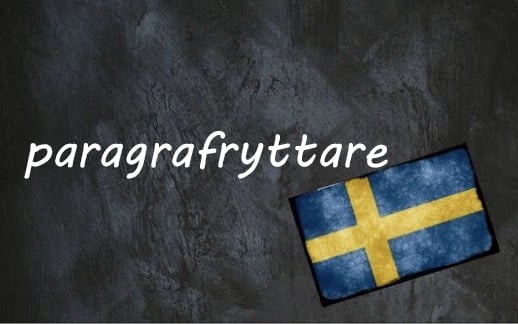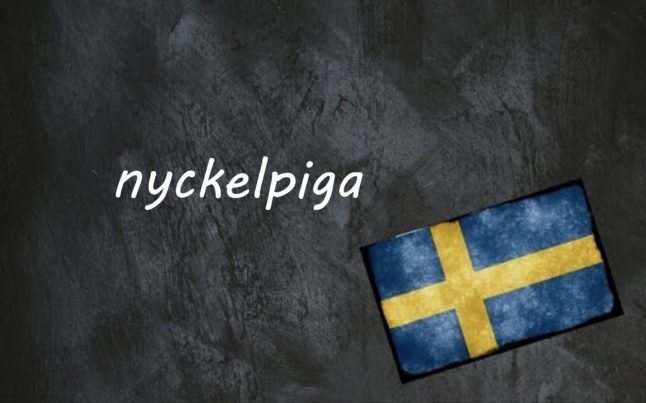The literal meaning of paragrafryttare is ‘paragraph rider’, someone who rides paragraphs, but its figurative meaning according to Svenska.se, is ‘a person who interprets paragraphs too literally, or in an insensitive and formalistic way.
The word paragraf in Swedish immediately brings the law to mind, as in a legal paragraph, but its meaning in this word more broadly refers to ‘rules’. Simply put the term paragrafryttare refers to someone who is a sort of ‘legalist’. So where does ‘rider’ come in? There seems to be no answer, but perhaps it is supposed to recall an image of a strict equestrian.
If you are Swedish or if you are a connoisseur of Sweden you will recognize paragrafryttare as capturing a bit of Swedishness, but a bit of research will reveal that it is also a German word, paragraphenreiter. Not surprisingly the terms mean the same thing, and have the same usage. Further examination shows that the word also exists in Norwegian and Danish – and most likely the words have the same origin.
Why then would the Scandinavian countries and Germany share such a particular word? Perhaps the answer might be found in the fact that the above-mentioned countries have a reputation for being efficient and having quite well-functioning bureaucracies.
And though Swedes have an image of not being known for bragging, the Swedish Prime Minister Magdalena Andersson recently described Swedish values in three words, one of them was pliktkänsla, ‘a sense of duty’, which undoubtedly in part was an allusion to the efficient bureaucracy that can be found in the country.
But does this Swedish sense of duty ever go too far? Is the system sometimes too rigid? Yes, certainly so. Among Swedes, as with other people, you will find those that are prone to excess – and those are the people that Swedes call paragrafryttare.
Example sentences:
Hela kavallerier av välrustade paragrafryttare har siktat in sig på det stora oljeutsläppet i Mexikanska golfen.
Whole cavalries of well-equipped paragraph riders have set their sights on the big oil spill in the Gulf of Mexico.
Dom utvisade honom på grund av en löjlig teknikalitet som någon paragrafryttare hittade.
He was kicked out of the country based on a ridiculous technicality some paragraph-rider detected.
Villa, Volvo, Vovve: The Local’s Word Guide to Swedish Life, written by The Local’s journalists, is now available to order. Head to lysforlag.com/vvv to read more about it. It is also possible to buy your copy from Amazon US, Amazon UK, Bokus or Adlibris.



 Please whitelist us to continue reading.
Please whitelist us to continue reading.
Member comments